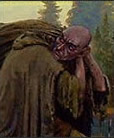Forum
Welcome Guest |
|
|---|---|
 Author Author |
Topic: |
|---|
| firefrostadept |
|
||||||||
| Malinornë |
|
||||||||
| cavear_and_cigarettes |
|
||||||||
| dirk_math |
|
||||||||
| cavear_and_cigarettes |
|
||||||||
| Falagar |
|
||||||||
| cavear_and_cigarettes |
|
||||||||
| dirk_math |
|
||||||||
| Falagar |
|
||||||||
| Malinornë |
|
||||||||
| dirk_math |
|
||||||||
| cavear_and_cigarettes |
|
||||||||
| dirk_math |
|
||||||||
| cavear_and_cigarettes |
|
||||||||
| dirk_math |
|
||||||||
|
|||||||||
| Eruantalincë |
|
||||||||
| lindele |
|
||||||||
| Lambengolmo |
|
||||||||
| Malinornë |
|
||||||||
| delalyra |
|
||||||||
| dirk_math |
|
||||||||
| purplefluffychainsaw |
|
||||||||
| Malinornë |
|
||||||||
| Malinornë |
|
||||||||
| purplefluffychainsaw |
|
||||||||
| Malinornë |
|
||||||||
| Malinornë |
|
||||||||
| kellidra |
|
||||||||
| kellidra |
|
||||||||
| Malinornë |
|
||||||||
| Tari_Niphredil |
|
||||||||
| dirk_math |
|
||||||||
| kellidra |
|
||||||||
| dirk_math |
|
||||||||
| Members Online |









 Let's translate quotes
Let's translate quotes
 ?
?

 "Many" in my language is classified as a pronoun…
"Many" in my language is classified as a pronoun… 